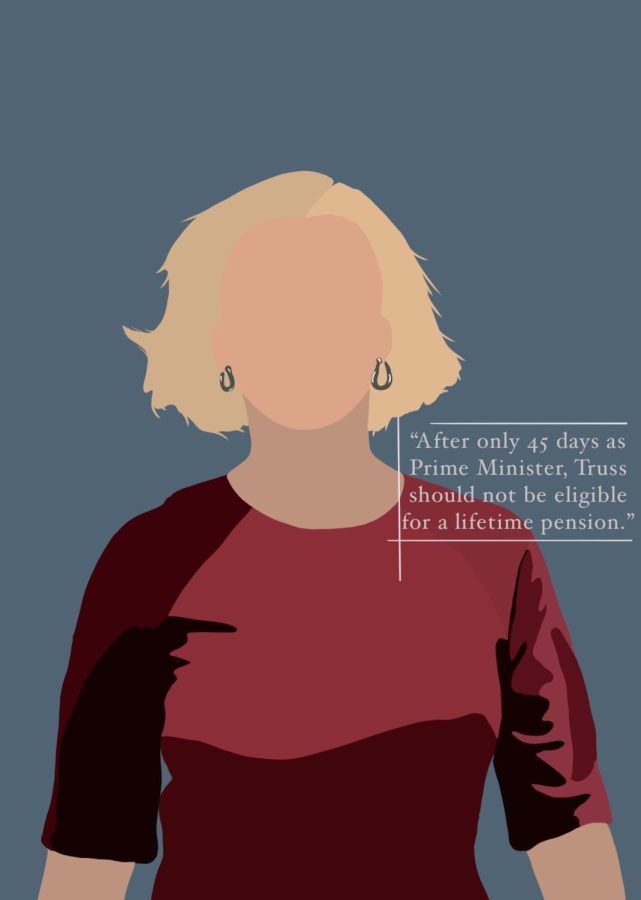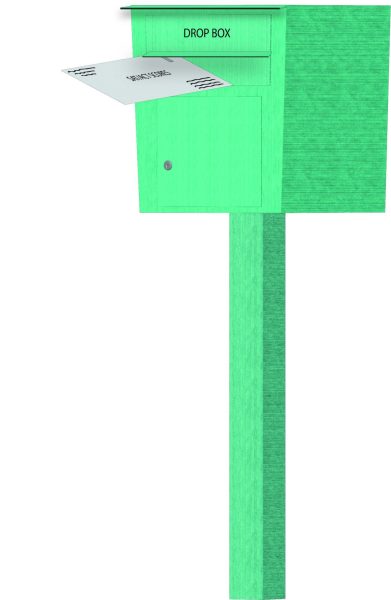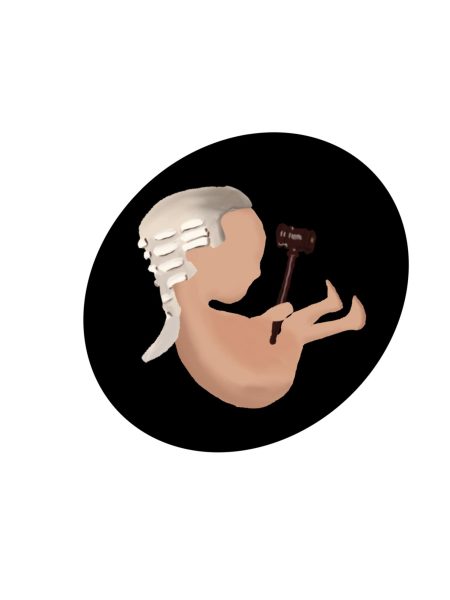Too much pension, too little time
October 31, 2022
Despite only being in office for 45 days, Liz Truss will likely be receiving a yearly pension of up to £115,000 ($113,655). This has sparked controversy among those who do not believe that someone who stepped down after less than two months in office should be eligible for any pension at all. While this outrage is understandable, whether or not she should be awarded any pension should be based on how she is planning to use it and her intentions to continue public service after stepping down — if she has any at all.
There are two types of pensions Truss may qualify for as Britain’s former Prime Minister: the Public Duty Cost Allowance, which is a reimbursement allowance with a cap of £115,000 ($132,513) meant to fund activities related to continuing public service efforts after leaving office. This can cover staff costs, office bills and charity work, among other necessary costs to be able to continue public duties. The other is a personal pension distributed through the Parliamentary Contributory Pension Fund, in which Truss could receive a yearly pension worth half of her annual salary, which was reported to be £84,000 ($96,792) at the time of her retirement. While that amount would not necessarily set her up for life, it is certainly more than should be provided for someone who could not last even two months in office.
After only 45 days as Prime Minister, Truss should not be eligible for a lifetime personal pension. If she were to get any type of personal pension, it should directly correspond to the amount of time she was in office. An official that was in their position for years should be better compensated for their time than someone that was only in office for a little over a month. The Public Duty Cost Allowance, however, should be awarded only if she plans to continue her work as a public servant, even if she is not an active Prime Minister. Whether she should be awarded the absolute most that is possible under the allowance is up for debate, though, since it is unclear how she would likely use it, but a small amount to fund her future endeavors benefiting the public is reasonable enough, as it would be benefiting the public more so than Truss herself.












